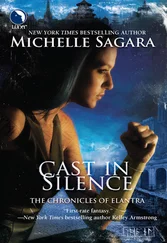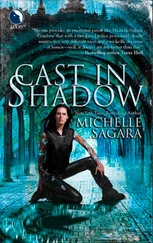She wondered at a race that could find the presence of Dragons more comforting than the presence of humans.
“There is very little a Dragon fears,” Epharim said.
And she didn’t even resent the way he answered the things she hadn’t said aloud. Perhaps her time with Nightshade had prepared her for this. Or perhaps the child had given her a small key.
“Fear?”
He nodded.
“It’s the fear that’s bad?”
“It is the fear that is most common. We frighten your kind.”
She nodded, and with more force.
“Fear kills,” he told her quietly. “It maims and it kills. It twists and it breaks. And among your kind, fear is part of the foundations upon which you build all thought.” His face shuttered as he said this, and he looked at her with his pale eyes, his antennae drawn back and down across his hair. “It is why so few are chosen to go and be among your kind. It takes a special talent to dwell so long with your thoughts and not absorb them, becoming like you.”
Kaylin couldn’t even imagine a life without fear.
Ybelline’s dwelling was not small. It was a manor, but all of its surfaces were rounded; even the corners of the building bent gradually, and looked to Kaylin’s eye like a rectangle trying its best to imitate an oval, and not quite succeeding. It felt like stone to the touch, and she knew this because she did. But it was a brown that most stone didn’t go without effort.
There were windows along the curve of the wall, but no balcony. Doors, the only flat surface she could see. Instead of steps, there was a ramp that sloped up gradually. Epharim lead them toward it.
“You don’t have horses here?”
“There are horses where horses are needed,” he replied. “But we find oxen more pliable.”
“But they’re food!”
He said nothing, but it was the kind of nothing that promoted stillness.
The doors slid open—literally disappearing into either wall—as he approached. “Ybelline will be in the back,” he told her. “She’s expecting you.” He paused, and then added, “We understand your fear, Kaylin Neya. It is not entirely groundless. But if I have said we live without fear, I have not been entirely truthful. We fear your kind.”
She started to say something, managed to think the better of it before the words left her mouth, and said instead, “So do I.”
“Help us, if you can.”
Before she could ask him more, he turned and left them. Kaylin looked at Severn. Severn was quiet and remote. “What do you think is going on?” she asked softly.
“Nothing good.” He began to walk and Kaylin fell into step beside him. “You did well, out there.”
“Hmm?”
“With the child.”
“The—Oh.” She opened her mouth and he lifted a hand.
“Don’t tell me you didn’t do that on purpose.”
“But—”
“Because it doesn’t matter. Be yourself here. It’s enough.”
“I’m always myself,” she said, half-ruefully, thinking about Marcus and the Hawks.
“I know. I’ve watched you, remember?” He shook his head. “I couldn’t have done that.”
“He was a child.”
“I know. But—they were willing to touch you.”
“No one touched—”
“Your thoughts, at that moment. They all did.”
She hesitated; a momentary revulsion gripped her.
“They’re afraid of us with more reason than we fear them,” he told her quietly. “Study the Tha’alani. Those who walk among the deaf will come back injured, or insane—by their standards—if they go too often. They absorb our fear and our terrible isolation.
“We’re a race of insane people, to the Tha’alani. Think about it, Kaylin—a home where there can be no misunderstanding. Where all anger is known and faced instantly, and all fear is addressed and calmed. Where all love is known, and all desire is accepted.”
“Oh?” Kaylin said, after a moment. “Then why am I here today?”
Severn said quietly, “Bet you dinner that it has something to do with the deaf.”
“Meaning us.”
“Meaning our kind, yes.”
She thought about it for two seconds. It was a sucker bet, and she didn’t make those on the losing end. “No deal.”
His smile was brief and dark. It suited his face so perfectly, with all its nuance, that she realized he was right: it was not a smile she could even imagine on Epharim’s face.
Ybelline was waiting for them in a garden that was both sedate and seemed, at first, very simple. She sat at a table in the open air, and there were empty chairs around it—two empty chairs. Kaylin bowed briskly; Severn’s bow was extended. But genuine. He obviously knew Ybelline, and Ybelline’s graceful nod implied that she remembered him. They’d met before. Maybe they’d even worked together. Seven years, Severn had lived a life that Kaylin knew nothing about.
Did you see what I can’t see? she thought with a pang. Do you know what he won’t tell me?
As if in answer, Ybelline turned to Kaylin. But her antennae were flat against the honeyed gold of her hair, and her eyes were dark, a color that sunlight didn’t seem to penetrate. Kaylin had seen that color before in Tha’alani, but she wasn’t certain what it meant.
“Please,” Ybelline said, her voice rich and deep, but still slightly odd. “Be seated.”
They both obeyed her easy request as if it weren’t a thinly veiled command—and Ybelline was so gracious, it might not have been. She offered them tea, and like the color of her hair it was warm and honeyed. Severn drank without pause, although Kaylin knew he didn’t particularly like sweet in beverages. Kaylin, on the other hand, thought they should be desserts.
“What you did, Kaylin Neya, was good.”
Kaylin was confused.
“Ah, I meant with the son of Raseina. The boy. Epharim told me about it.” She did not smile as she spoke, but her tone conveyed gratitude. Which was odd. “You are fond of children,” she added, “and now, the collective knows this.”
Collective?
“The Tha’alaan,” Ybelline said, raising one brow. She looked at Severn, who was wincing. But she didn’t miss a beat, and her brow fell. “Your introduction to my kin was not a kind one. Perhaps not harsher than you deserved, but still, harrowing.”
Kaylin nodded at both statements.
“I have been gathering my own thoughts among my kin,” Ybelline continued, “and I would have conveyed what I felt in you the first time we met—but this was better. The child touched you—he is strong—and what he felt, the Tha’alaan felt. Your people believe in lies,” she added, “because they cannot hear truth.
“But there is no lie in that affection, although you fear us.”
“He’s a child—” Kaylin began.
“He is, but he will not always be a child, and many of your kind would fear him for what he might see, or how they might affect him with their fear and their secrets, the things they cannot help but hide. Hiding didn’t occur to you when he ran toward you.”
“It was a test?”
“No. Not a planned test, but perhaps the gods are kind.”
Kaylin had her doubts, and was aware that keeping them to herself around this woman was impossible. Then again, she generally didn’t keep that particular thought to herself, so no big loss.
But Severn said, before she could continue down that path, “Why was this fortunate, Ybelline? Why would it have been necessary to make such a statement to the Tha’alaan?”
Kaylin looked at Severn with surprise and a complete certainty that his question was actually one she should have been thinking.
“Yes,” Severn said, not bothering to spare her because, well, Ybelline would probably hear it anyway, “it was. But where children are concerned, you seem to forget simple things like thinking.”
Читать дальше












